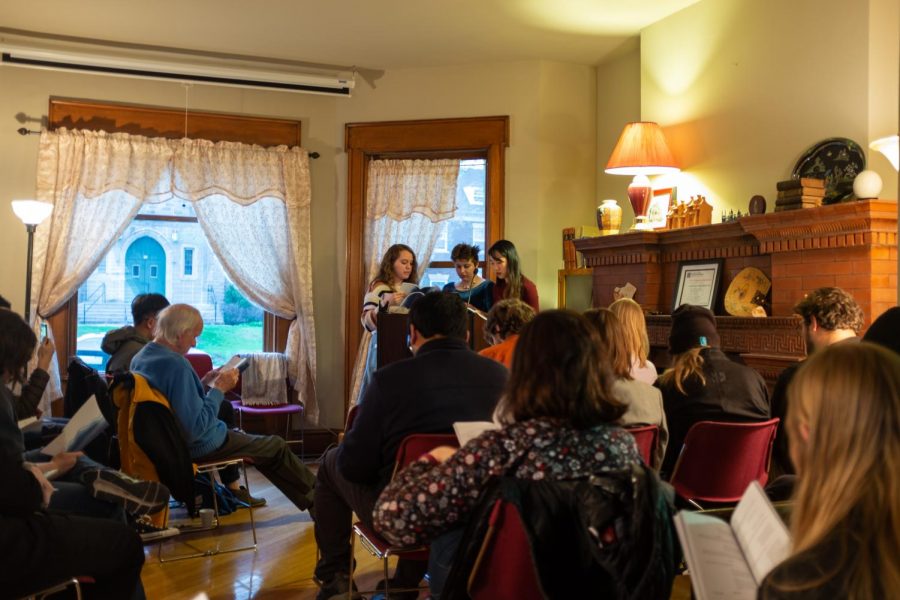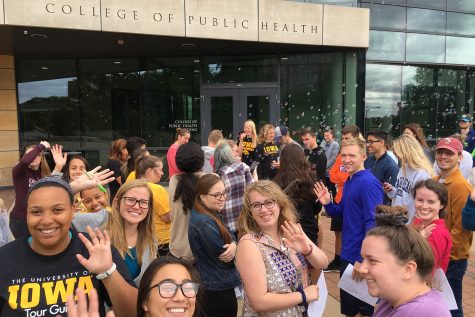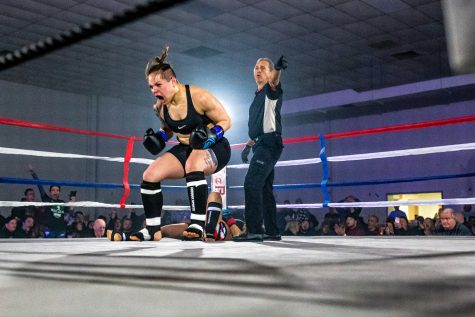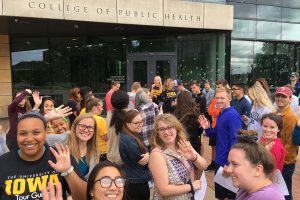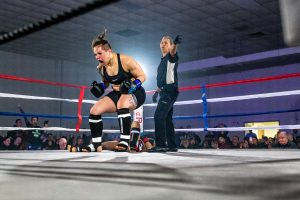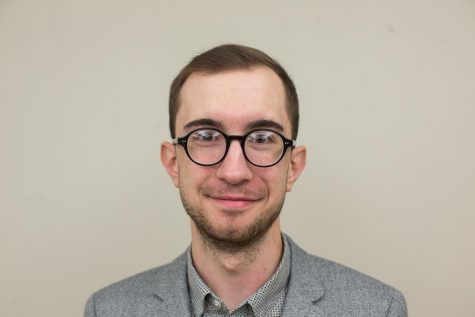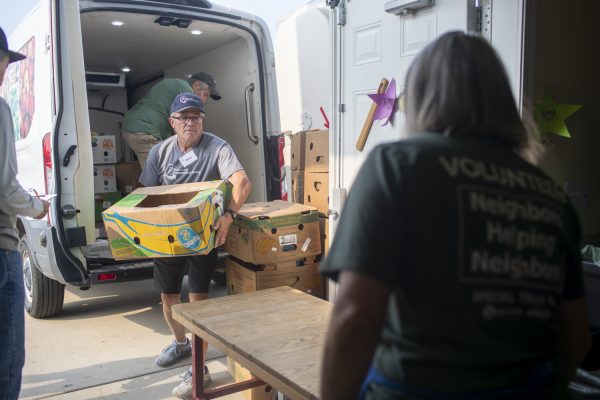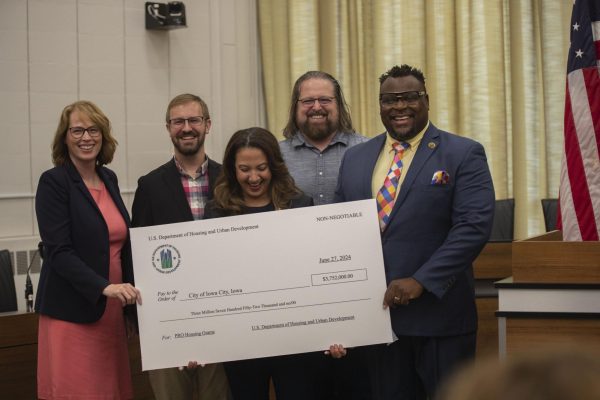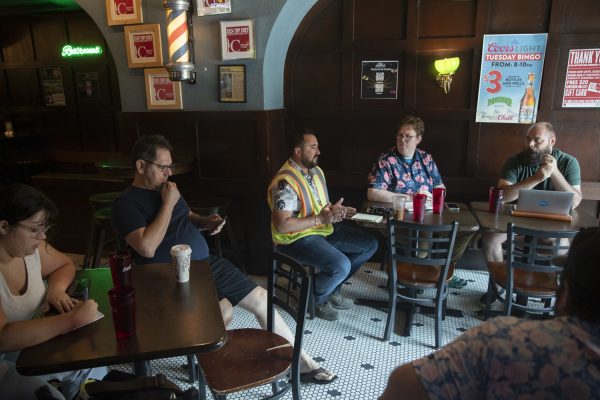Translate Iowa Project turns 3, celebrates international writing at the UI
The Translate Iowa Project celebrated the launch of its third issue over the weekend at the Shambaugh House, celebrating literary works and their translations into a plethora of languages.
Members of the Translate Iowa Project read from the play Cutting, which discusses female genital mutilation, on Saturday, April 27. The student-run literary magazine, which launched its third issue over the weekend, transcribes written works into a plethora of languages.
April 28, 2019
Nestled in the sitting room of the Shambaugh House with three large windows separating the warm light from the gloomy, overcast sky, a cacophony of languages and written works filled the historic house with short stories, poems, and even a play.
The reason for the gathering on the evening of April 27 was simple: a showcase of the third volume of the Translate Iowa Project, a student-run publication that takes literary works and transcribes them into a host of languages.
For the third instillation, Boundless, works were translated into Arabic, Italian, Japanese, Latin, Mandarin, Portuguese, Romanian, Spanish, and Swedish. Throughout the reading, some audience members chose to follow along in their print copies, attempting to decipher tongues other than theirs. Others, such as the older man with dark, horn-rimmed glasses in the front row, chose to close their eyes as the translators read.
RELATED: Library offers summer reading program in 6 languages to increase accessibility
Some works, such as Translate Iowa Vice President John Herbrand’s “Technology is Good” — which imagines a future in which a shoe company controls every aspect of our lives — were humorous.
“They have screens or something, and we are losing ourselves to Big Shoe and their trackers. And greed. The horror, the inhumanity, the shoe screens,” he read.
Others, such as the play “Cutting,” by Cassandra Chia, were more serious. Her work discussed female genital mutilation.
“There is a science that proves that there are no health benefits whatsoever,” Chia read. “How could you ignore all that? You’re just hurting the child. You’re violating her rights. How can you call yourself her mother if you do this?”
On a year-to-year basis, Herbrand said, the languages vary — it is always interesting to incorporate new languages such as Romanian and Swedish.
“There’s a lot that goes into something like this, like any student publication,” he said. “We’ve established relationships on campus and have the money to put it together, which is so important. For our publication specifically, we have to get submissions and find translators for those pieces.”
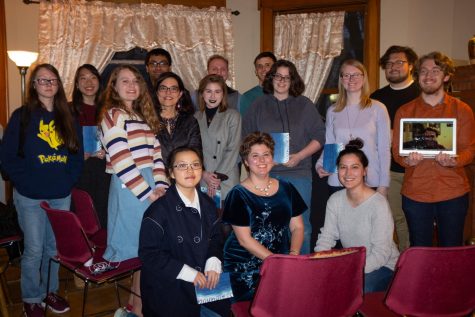
In terms of the makeup of the organization, the entire executive board comprises students, but community members do participate.
“It’s a combination of both reaching out to students and their reaching out to us,” Translate Iowa President Onae Parker said. “We try to reach out as much as possible to students who may be interested, but writers and translators who are interested find us one way or another.”
She said a perfect example of this is a translator the group has worked with who lives in Romania; the project has also received written submissions from members of the community.
“I’ve had a lot of older community members approach me about Translate Iowa, and I think that’s great, because we want to be more than just a ‘student group,’ ” Herbrand said. “We’ve always tried to be more community-focused.”
Translate Iowa wishes to incorporate more voices, he said, including stories transcribed into American Sign Language and posted in video form online. Overall, all group members said they wish to create an inclusive environment for literature.
“Basically, our goal is to share a wide variety of voices,” creative coordinator Mac Gill said. “Our mindset is that we are trying to share voices and stories that would otherwise not be shared.”



